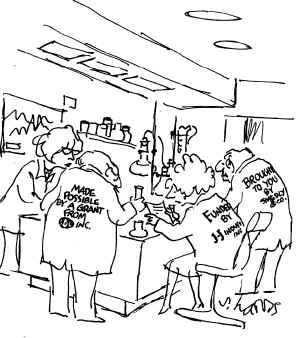
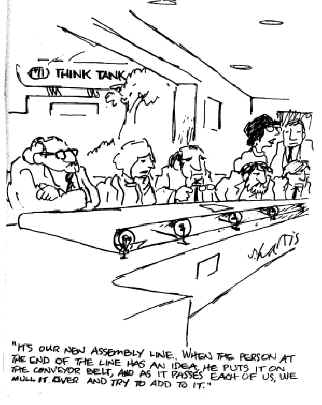
PRACTICE GROUP ACTIVITY SCIENCE QUOTES & CARTOONS
HERE IS THE GROUP ACTIVITY WE DID ON AUGUST 25th. Individuals who missed class on that day should go through this on your own and review the ANSWERS which are also in Dr. H's August 25th presentation (see the CLASS FOLLOW UP link).
GROUP
ASSIGNMENT #1: CARTOONS & QUOTES BY & ABOUT SCIENTISTS
Objectives:
(1) To deepen your understanding of the many-faceted characteristics of the scientific process by identifying some of these aspects of science as they emerge in quotes from actual scientists and cartoons about scientists.
(2) To discuss and possibly revise your group view of science, based on this (hopefully) deepended understanding.
PART A – QUOTES ILLUSTRATING ASPECTS OF SCIENCE
Match each QUOTE with the phrase that BEST expresses an aspect of science that the scientist is talking about in his or her quote.
PART B – CARTOONS DEPICTING ASPECTS OF SCIENCE
As a group, match each CARTOON with one of the phrases about different aspects of scientific research listed on the back of this sheet.
PART C – GROUP DISCUSSION & SUMMARY
Discuss what aspects of science you may have learned about in this exercise that were new or surprising to you.
Based on all you have read and learned about the scientific process, discuss what you think are the most important things the general public should realize about how science operate
PART A – QUOTES ILLUSTRATING ASPECTS OF SCIENCE
Match each quote below with one of the following phrases by putting a NUMBER in each blank
_____ CURIOSITY & SELF-DISCOVERY TEND TO MOTIVATE SCIENTISTS
_____ DEDICATED & PERSISTENT RESEARCH YIELDS BENEFITS
_____ SCIENTISTS ARE ATTRACTED BY THE WONDER, AWE, & JOY FOUND IN THEIR RESEARCH
______ INSPIRATION EMERGES FROM A WELL-INFORMED MIND
______ THEORIES CANNOT BE VERIFIED, BUT THEY CAN BE FALSIFIED
______ SELF-DECEPTION CAN COLOR AN OBSERVATION
______ KNOWLEDGE IS EVER-CHANGING
QUOTES BY SCIENTISTS ABOUT THEIR SCIENCE
1. Newton's passage from a falling apple to a falling moon was an act of the prepared imagination. John Tyndall (1820-1893) Irish physicist.
2. The joy of insight is a sense of involvement and awe, the elated state of mind that you achieve when you have grasped some essential point; it is akin to what you feel on top of a mountain after a hard climb or when you hear a great work of music. Victor Weisskopf (b. 1908) Austrian-American physicist
3. Besides learning to see, there is another art to be learned -- not to see what is not. Maria Mitchell (1818-1889) US Astronomer
4. No, it's a great life. It's harder than I ever imagined, in the sense that you have to get used to wasting an enormous amount of time. You have to get the discipline of sitting at your desk fooling around with ideas that almost never work and living for the rare moment when an idea does work. Steven Weinberg (b. 1933) US physicist.
5. Ask questions. Don't be afraid to appear stupid. The stupid questions are usually the best and the hardest to answer. They force the speaker to think about the basic problem. Paul Ehrenfest (1880-1933) Austrian physicist
6. The one universal ever-operating law throughout has been the law of change. Nature never stands still and never duplicates herself. Life is always in the process of becoming something else. Laurence M. Gould (b. 1896-1995), US scientist
7. No amount of experimentation can ever prove me right; a single experiment may at any time prove me wrong. Albert Einstein (1879-1955) Swiss-American physicist
PART B – CARTOONS DEPICTING ASPECTS OF SCIENCE
Match each cartoon below with one of the following phrases by putting a LETTER in each blank
_____ INDUCTIVE REASONING
______ DEDUCTIVE REASONING
______ EVER-CHANGING NATURE OF SCIENTIFIC KNOWLEDGE
______ PREDICTION & TESTING
______ CONFLICT OF INTEREST
______ REVIEW OF SCIENTIFIC RESULTS BY COLLEAGUES
______ SCIENCE IS A CUMULATIVE ENTERPRISE
CARTOON A CARTOON B


CARTOON C
CARTOON D
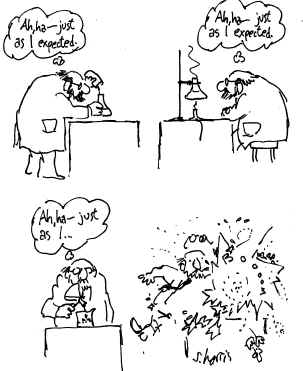
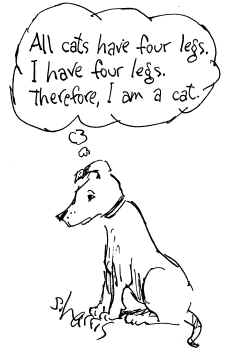
CARTOON E
CARTOON F
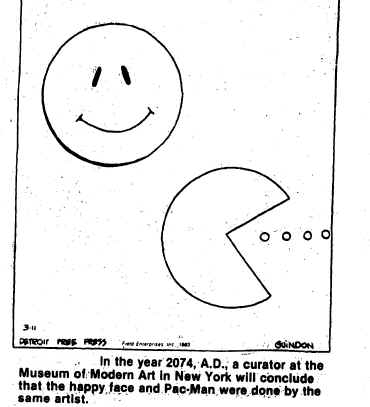
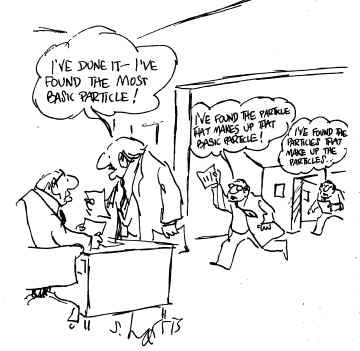
CARTOON G
_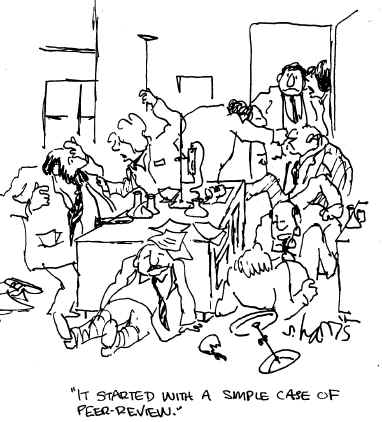
ANSWER KEY for Part A - QUOTES
ANSWER KEY for Part B - CARTOONS